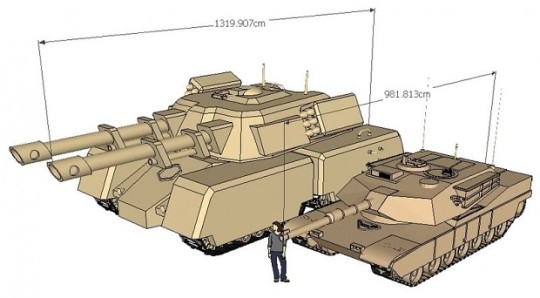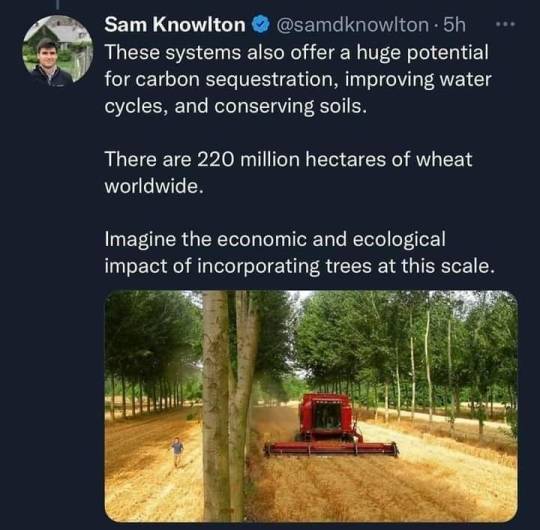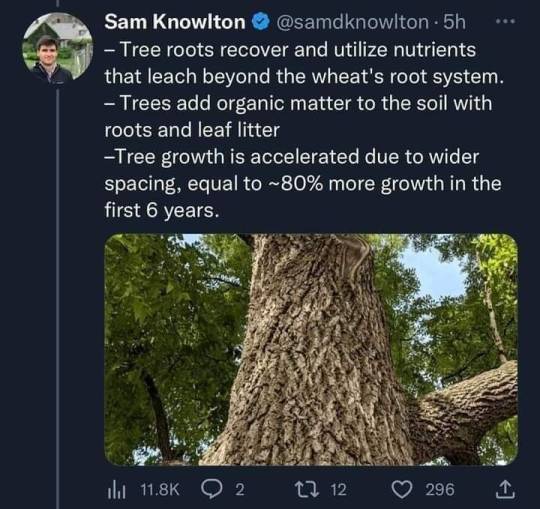Don't wanna be here? Send us removal request.
Text
Communism vs. Capitalism
A common phrase, but completely misleading.
Communism and Fascism are economic, political, and moral systems. Capitalism is an economic system.
So, what were the factions?
Soviet Union:
Communism
Communism
Communism
NATO:
Capitalism
Liberal Democracy
Christianity
Despite what anyone says, the West's moral is entirely based on Christianity, and Liberal Democracy != Democracy.
And this is why Christians falsely criticize Capitalism as rampant consumerism, because Capitalism was NEVER meant to be a moral system. It was also never meant to be a political system.
And this is why Capitalism without Christianity feels hollow. The only way you have of showing your position in society was money, and as such the pursuit of money became the only goal. Which was ironically pushed by Communists.
You see Communism wants to break up the family unit, and put women into productive economic work. It was/is Feminism and Communism that undervalues the contribution of mothers.
It turns out, shocking, that children raised without mothers or fathers grow up with major problems. We love saying fatherless behaviour, but mothers rarely act like mothers nowadays. Children are raised by outsiders while the women engage in what is falsely labeled as economically productive work. Basically, the line-goes-up theory of economics, which is too vacuous to be given any intellectual validity.
7 notes
·
View notes
Text
WALL-E
One of my favourite movies. Everything is done fantastically, but one of the big things I love about it is that the Utopian and Dystopian aspects are the same.
For those that haven't watched WALL-E, GO AND WATCH IT.
First off, Earth.
What happened to Earth is that a megacorporation took over every aspect of society. And, in all honesty, they weren't that bad. They were not evil in any way other than their omnipresence. They aren't shown doing the typical evil corporate dystopian things. We don't see them turn the working class into slaves, no evil robots, nou panopticon, nothing.
And they still destroyed the world.
But, luckily for me, none of it was Capitalism. Monopolies and oligopolies are not Capitalism. And when one gets close to taking over the government, it's closer to Fascism than Capitalism.
The next is externalizing costs. Basically, poison. One of the keep aspects of Capitalism is that profit follows risk. The reason they can hoard their profit is that they took all of the risk. If you externalize the risk but keep the profit, you are a thief. The big costs that are being externalized are the destruction of nature and poisons, in particular, forever chemicals.
Forever chemicals are entirely man-made and not found in nature. These have no natural mechanism to break them down, and as such, literally last forever.
Plastics are almost this, as there are natural mechanisms being discovered, (i.e. mushrooms). They can be turned into artificial bitumen, but you don't really get energy out of it. It should be noted that plastic recycling is not really a thing, and 99% of the plastic sent out for recycling is exported to the third world to either be burnt, or left on the beach for the tides.
On the other end, monitoring companies for poison effluence is expensive and demanding.
Now onto space. The company did something truly remarkable, admit fault. Yes, it was way too late, and only because there were no governments left to punish them for it or force them to ameliorate.
So, the company builds colossal, fully automated space cruise liners. Every (surviving?) person on Earth would get a fully catered space cruise. This sounds great, until you remember that the difference between Star Trek and Judge Dredd is the Human need to contribute. You end up with Humans nearly atrophied from existence. Kids are not raised by Humans, but machines, and Humans never leave their hover beds.
The hover beds were designed to allow weak and infirm family members to the family in whatever they were doing, and...
it was just so convenient they never left, ever. Humans never stood on their own two feet, to the point they literally forgot about all of the physical luxuries of the cruise ships. They were in paradise, where they lived off providence instead of tilling the soil, and their bodies rotted from atrophy. It wasn't until the very existence of Humanity and Holy Terra was in jeopardy that they - literally - stood up.
7 notes
·
View notes
Text
Unions Did Not Give Us the 40 Hour Work Week
Unions in theory are collective bargaining, but it only works if the union has absolute control over the worldwide market.
Unions need total control of the local market to have any effect, and then it just encourages companies to look elsewhere. I have seen several unions completely fail to maintain wages.
Henry Ford created the 40 hour work week. He paid above market, but demanding incredible productivity. This nearly doubled the productivity of workers. The 40 hour work week prevents exhaustion from work, and allow them to maintain higher productivity. But, the higher wages encourage them to maintain higher productivity.
But what unions do is protect workers based off time in, and not productivity. This creates a situation where the workers are simply not worth the wages, and the company has to move elsewhere.
Are unions communist? In theory no, in practice, yes. Unions act as if they are the workers fighting the bourgeoisie. They treat their war as so holy that they can attack anyone who does not agree with them.
Unions with permanent positions are filled with people who would rather do union bullshit than work. Unions with positions that are only paid when they have work, i.e. a worker steps off the floor for a couple hours to deal with an issue, are much more likely to have actual workers.
---
This is partially a response to the SAG-AFTRA / HoYo fight. It turns out that HoYo was already paying union wages. Union wages are often considered "prevailing wages", i.e. the cost you have to pay to do business. If you cheap out on it, you will get lower quality work.
6 notes
·
View notes
Text
Star Trek Utopia
Star Trek was overly idealistic. And in truth, it wasn't really until Gene Roddenberry's death that we had any idea HOW the politics and economy of The United Federation of Planets works.
If anyone remembers the episode Justice of TNG, the planet of Rubicun III. It's the episode where Wesley nearly had capital punishment on the paradise sex world.

This was meant to be Earth. He was thankfully talked into it.
Later episodes do reveal how the economy of The Federation operates, and it's a liberal democracy. There are strong personal freedoms, and strong property rights. You might ask, how can there be strong property rights in a communist state? It's not communist.
After the first warp test ship was created, and after First Contact, Mankind just... decided to work together. It seems like early rebuilt civilizations had a gift economy. This was probably pretty easy, (relatively), to pull off, with the Vulcans promising technological development to anyone that joined the zeitgeist.
Vulcans, for the record, have a bureaucratic technocracy. Like Equilibrium, this only works because they are emotionless zombies. Vulcans still have marriages arranged by their families. Only emotionally unstable Vulcans seem to have a problem with it.
After the gift economy allowed society to rebuild, society got to the point where much production was entirely automated.
One of the (many) problems with communism is that:
Who has to work in the factories?
Who has to work themselves to death in the mines?
Well, in Star Trek, Earth got to the point it didn't have to worry about it. Instead, it put it's effort on something completely different.
For the record, other than First Contact, Star Trek and Judge Dredd both have identical backstories. The difference is that Star Trek values your need for fulfillment. It understands your need to contribute in a way most optimal with your character and abilities.
It's a worth that takes the first officer of the most blinged out Capital ship, and values his Trombone abilities equally to his duties as Command and XO of the Enterprise.
Sure, by TNG, they can have a replimat, where you can sit and eat, but this is only necessary if you actually feel like going out. It purposefully creates a Third Place. If you want to open a pub, they will help you. If you want to create a sport arena, they will provide you the necessary space and administrative support.
Do you want a 40 storey building dedicated to painting your warcrack? As long as it's built in an area with enough demand.
Of course, this is entirely theoretical until we can reach post-scarcity economy. The only thing we can take from it is unfortunately the French idea of ennui.
Le sigh.
*exhales his cigarette*
That, and the absolute importance of Third Places for community cohesion.
7 notes
·
View notes
Video
youtube
How is a Bike Tunnel this Freak'n Great!?
A city in Norway was digging a tunnel for it’s light rail. Tunnels need emergency tunnels beside them. They decided to widen and improve this and turn it into a full-on bike path.
Runtime: 27:04
0 notes
Video
youtube
Why This Ultra Cheap Battery Breakthrough Matters
A dry 3d printing technique for battery electrodes. This allows the batteries to be manufactured with less material and space, and in a larger set of orientations. It also works with pretty much every material, even ones that cannot work with the current wet process.
Runtime: 13:45
3 notes
·
View notes
Video
youtube
Special Operations vet commutes by Flying Car from rural off-grid home
A flying car. Entirely computer controlled, and light enough to be in the ultra-light category. As he describes it, it’s a drone that he rides in.
It uses a Tilt-BODY design. This removes pretty much all of the mechanical problems from tilt-rotor and tilt-wing. It uses 80% of the power for takeoff, vertically, and 20% of the power for normal flight, as a biplane.
Hand-building a house with walls made from ground up starbucks cups mixed with concrete and rebar.
20 minutes / 20 miles range.
Runtime: 24:21
3 notes
·
View notes
Text
Have You Tried Walking?
The redheaded step child of city design.
The most efficient form of travel over short distances, (and with training, reasonably effective over longer distances), and one that requires no specialist equipment. Further, it allows extremely low-resource infrastructure to be constructed, for a fraction of what it would for any other form of transport. People on foot can use stairs, tiny doors, tiny walkways, ladders, AND improvise their way over most neutral or even hostile terrain. Like walls.
And if you include walking, you don't need to have transport from point A to point B, and you can design your city so that every place is a 10 minute walk away from the transport.
Walking also has the great benefit of improving overall health.
Alright, so, let's take it for granted that we want our city to be walkable, what do we do?
Nothing. In fact, do less than nothing. Almost everything cities do is to the detriment of walking.
Allow mixed usage in every neighbourhood, even low density ones. Have medium density ones walking distance to the low density neighbourhoods. Keep streets, (low speed/high interactions), roads, (high speed/low interaction), and highways, (higher speed, only merging), separate.
In high density neighbourhoods, you could actually do something. Pedways. Have foot bridges at a higher or lower level than street level. When someone wants to build a skyscraper, they have to create public areas at a certain height above or below street level.
Below would put them in line with subterranean railways.
Above would would put them at the height of elevated trains, along with the footbridges many cities already use.
Turn it into a mall, where people can rent retail space. This would actually allow small businesses to flourish in the areas dominated by megacorps. Give them a vacancy tax for these, to stop them from overcharging on them.
Again, all of this can be done with simplifying regulations. With the city covering the cost of pedways.
2 notes
·
View notes
Text
Winter
For most history in the North you could NOT be economically productive during the winter. You also couldn't travel.
So, what did you do?
Try not to die.
Key word try.
We have the word Winterkill for a reason.
The industrial age let us be economically productive in the winter, without making it necessarily a good idea, but the fastest urbanization in Human history, (Industrial Revolution Britain had a faster urbanization than the Communist Forced Urbanizations), made it necessary to work - work - work.
But then Capitalism kicked in. The economy adapted, and we got the '50's. You could survive on a single income, rather than have the husband, wife, and all of the kids down to the five-year-olds working. But, we decided, without aforethought, that we should work just in much in winter. While commuting from the suburbs.
So, what used to be the most low-key time of the year suddenly becomes the most stressful. As our primary solution to snow is heavy lifting.
Seriously, shovelling snow is one of the biggest causes of heart attacks. Because people aren't used to working that much. They should be used to working more, but the point still remains valid.
Alright, how do we solve the problem of winter? Other than global warming.
Well, the most obvious answer is to go underground. A lot of city will have an undercity. Underground malls that connect to major towers and subterranean transport.
Or just have a garage. Anyplace up north needs a foundation to reach below the frost line, and you can easily turn that into ground-level parking for apartment buildings.
But, that costs money!
Says every - single - person living in a city and complaining about how expensive real estate is.
The place I work has a small parking lot, and it costs $800/day to plow. And you have to do that every day it snows. We live in a place where snow only last a couple days, and so everyone around here just hides until it goes away.
But, if you had a parkade, you could reduce that to 5-10 minutes of hand shovelling and a bit of salt.
Alright, what else could we do?
Well, Switzerland have small, tight-knit communities that are walkable, low and medium density mixed usage. You put the train station in the medium part, and... everyone can walk. It doesn't just make neighbourhoods walkable, liveable, submissive, and breedable, it means a LOT less shovelling. Or snow plows.
They have narrow ridgeline just big enough for train tracks, and... they have trains. Trains require a lot less shovelling and plowing.
We could also allow people to save their money instead of inflating it, so they don't have to work as much in winter. And make it easier to start your own business, so you can be your own boss.
3 notes
·
View notes
Text
Pigs can turn household waste into meat. Medieval houses had hearths, which were perfect for smoking meat. There were rules for when and where swine could be turned out, woodlands were measured in how many swine they could forage.
And it's not just Europe. The Chinese character for home, 家 (jiā), is literally Pig with a roof over it's head.
What does this have to do with Neo-Atlantis?
The Future is the Past. We used to have rules that allowed maximum use of a property, and now we have people going to jail because they had the temerity to grow tomatoes on the front lawn.
Runtime: 6:47
6 notes
·
View notes
Video
youtube
How This TRULY Omni-Directional Wind Turbine is Genius
Wind turbines are finally catching up to Waterworld.
These turbines are designed to be used on a small scale, with wind coming from any direction, (in 3 dimensions). This is because wind is often 3d in urban environments.
We would still need neighbourhood-level power storage to make this viable.
Runtime: 11:24
2 notes
·
View notes
Text
Reminds me of the lost art of chainsaw parties.
Back when I was young, we didn't wait for the government to remove a downed tree. We just took the free fire wood.

57K notes
·
View notes
Text
rip to all the “fuckyeah___” blogs that carried our society at one point </3
290K notes
·
View notes
Text
The Humble Mammoth Tank

This is oddly one of the most viable science fiction tank designs, because it changes very little from current technology.
Despite the apparent difference in cannon size, the Mammoth is stated as using a 120mm cannon, which is the same size of cannon used by modern Abrams. This is also the heavier standard for artillery cannons. It has it’s own Anti-Aircraft radar and AA missile systems, which are also very real and easily attached to the Mammoth Tank’s mammoth frame.
But, what powers such a behemoth?
Nuclear.
Now, the first thought most people have is standard fission reactors. All the basic information I’ve seen suggest a 30ft x 40ft size for naval reactors, and the Abrams is about 30ft in length. This means a current convention nuclear reactor would take up 1/3 of the Mammoth Tank’s main hull. This is surprisingly viable, but we should also talk about Micro Nuclear reactors. Standard nuclear reactors used controlled reactions, but micro-nuclear reactors use natural decay. This allows them to be miniaturized enough to have legitimate discussions about putting them in cars. The most popular one, Thorium, has a half-life measured in Thousands of Years, and is plentiful enough to be given primary consideration, (it’s actually a waste product of Uranium-234 (enriched) decay; U-234 is the stardard Uranium used in most nuclear reactors).
This would allow it to patrol areas that no other vehicle could, like say, the US’s / Middle East’s vast deserts. Or, say, post-apocalyptic desert wastelands. It has enough interior space to have bunks and basic amenities. If you added water recovery, which is not inconceivable given it’s size, it’s biggest limiting factor would be food.
Humans are always the weakest link.
65 notes
·
View notes
Video
youtube
The Crazy Science of 3D Solar … and More
They are working on solar power in less than ideal conditions.
They haven’t really made anything concrete yet.
This is more about his comment, that one of the biggest problems with solar power is buying the land.
Because, without any irony, people think that clearcutting to make room for solar power helps the environment. Or clearcutting for wind power.
These technologies make zero sense unless we can use them without clearcutting.
Like, we can put wind farms on mountains. God-forsaken modern skycrapers have about half of their window space as entirely decorative. They could easily be replaced with solar panels.
Runtime: 14:00
1 note
·
View note



